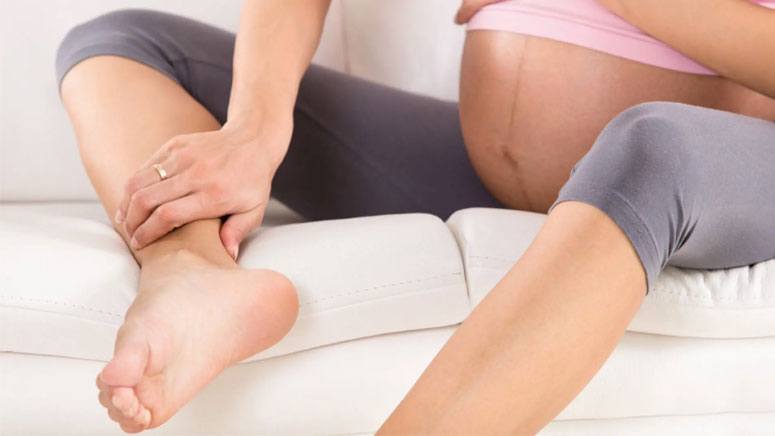Causes

There are several possible causes of edema, ranging from circulatory complications to pregnancy to infections or tissue death and various other causes. Such as:
- Pregnancy: during pregnancy, many circumstances may lead to edema. A pregnant woman tends to sit in a reclined position most of the time, this causes the enlarged uterus to press the inferior vena cava and this blocks the femoral veins which lead to edema. Also, the body releases more hormones during pregnancy and the body adjusts to increase fluid retention. This causes the sodium and water quantity in the body to increase, thereby causing edema. Complications like preeclampsia and deep vein thrombosis also increase the risk of edema.
- Medications: the usage of some medications leads to the inflammation of the body, especially the legs and arms. Such drugs include pramipexole, calcium channel blockers [1], nonsteroidal anti-inflammatory drugs (NSAIDs) [2] like ibuprofen, some chemotherapy drugs, and estrogens.
- Liver disease: complicated types of liver disease such as cirrhosis [3] lead to the retention of fluid in the body which leads to swelling. Cirrhosis causes low levels of proteins and albumin in the blood. The retained water leaks into the abdomen and it leads to edema of the leg.
- Kidney disease: an individual with kidney problems will have difficulty in eliminating sodium and water from the body. This causes pressure on the blood cells, thereby causing leakage and then swelling. Nephrotic syndrome [4] which is caused by injury of the capillaries of the kidney, may also lead to inflammation of the leg and sometimes the whole body.
- Dietary factors: some dietary factors also increase the risk of edema. Consumption of too much salt leads to edema. Malnutrition which occurs from low levels of proteins also causes this health condition. Also, a lack of consumption of vitamins B6, B1, and B5 leads to edema.
- Heart disease: in order for the heart to pump blood effectively, one or both chambers of the heart must be working. If the heart has a problem, it causes blood to be stored in the limbs and therefore leads to swelling.
- Weakness of damage of veins in the legs: chronic venous insufficiency causes the weakening of the one-way valves present in the leg veins. This leads to blood storing in the veins of the blood and finally results in swelling.













